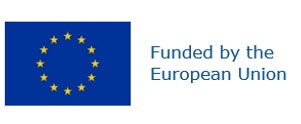Monitoring mobility issues around large events: the AI-CENTIVE solution
AI-CENTIVE is all about using AI to understand and predict local mobility, with the use of incentives to encourage more use of sustainable mobility options. One of the cases where it is beneficial to leave the private car at home and use either shared transportation (e.g. ridesharing, public transport) or a more flexible form of mobility (e.g. bicycle, scooter) is when a large and important event is taking place near to a citizen’s usual route which would affect traffic fluidity. This can be seen as an opportunity to promote these alternative forms of mobility as long as relevant events can be identified in advance and the locations affected by them.
The Web dashboard of AI-CENTIVE (from project partner webLyzard) is a tool to identify and track the effects of large events on mobility within Austria. MODUL Technology performs the data collection from the Web to feed the dashboard’s analytics and visualization components. We demonstrate it with respect to two concerts which are attracting large numbers of visitors to Vienna. Firstly, there were the planned Taylor Swift concerts which were cancelled but led alternatively to large groups meeting in various locations in the city. Then there is the series of concerts by Coldplay planned for 21-25 August in the Ernst Happel Stadium. Through both, we can reflect on how the dashboard – which provides “Web intelligence”, meaning an analysis of the content of public Web pages such as news articles – reveals details of mobility patterns for both past and future events.
The Taylor Swift concerts were planned for 8-10 August. Considering Web content over that period as many Swift fans still came to Vienna (7-11 August, searching for “Swift” as well as “Swifties”), the top story extracted from the online news reports refers to the Corneliusgasse together with the English “Cornelia Street” which is the title of a Taylor Swift song. Because of this song, many Swifties gathered in the Viennese equivalent in the sixth district. Meanwhile, the geo visualisation (related to locations extracted from the text) in the dashboard reflects a concentration of Swift concert related news mentioning Stephansplatz, where thousands of fans gathered in the evenings to sing Swift songs.
The top story shown in the dashboard for news over 7-11 August searching for “Swift” or “Swifties” references Corneliusgasse.
Vienna geo-visualisation with a concentration of news articles mentioning Stephansplatz
This analysis over past news shows how key locations for events that have occurred can be identified. Instead of the Ernst Happel Stadium (as would have been expected if we had been looking into the future), we see that it was Stephansplatz and (perhaps the least expected) a short street in the sixth district called Corneliusgasse which are mentioned the most. Indeed, we can validate this data from the dashboard as correct, knowing that indeed these were the two most popular locations in Vienna for Swifties to gather over the weekend of the (cancelled) concerts.
Having shown how the data analysis and visualisations by the dashboard can correctly highlight locations that are affected by mobility-relevant events, we can make use of the predictive mode to identify and make similar mobility-related predictions for future events. MODUL Technology developed text-based predictive analytics originally for the ReTV project (to identify future topics of interest to TV audiences). Here, online content is selected based on reference to future dates and its analysis is presented in the same way (with visualisations) in the dashboard. We choose 20-26 August for our future date range (this experiment was conducted on 19 August) and analyse all public news articles in Austria which mention any of those dates. The dashboard’s “storygraph” visualisation provides a chronological overview of detected events. Interestingly we are alerted to the “Oper im Steinbruch St Margarethen” which is also mentioned during this period. By drilling down to only the Coldplay documents, we can see in the same storygraph visualisation that they are associated to the period 21-25 August.
(above) Predictions for 24-25 Aug in the storygraph visualisation with Steinbruch opera and the Coldplay concerts. (below) Coldplay concerts cover the period 21-25 Aug (note that 20 and 26 Aug are empty).
Looking again at locations associated with the event in the online documents, (Ernst) Happel Stadium stands out as being mentioned in almost every matching document. Therefore we could automatically extract this data via the dashboard that this is the primary location for the Coldplay concerts. From the geo visualisation we find also a reference to Ludwig Koessler Platz, and it turns out a bus which runs from there will be diverted for the concerts so we have found another mobility-relevant association.
(above) “Happel Stadion” as the primary location mentioned together with the Coldplay concerts. (below) Ludwig Koessler Platz is also mentioned (and mobility there is affected by the concerts).
The case of Taylor Swift is perhaps a rare one, where concerts are cancelled at short notice, but serve as a reminder that predictions are always subject to other circumstances we can not anticipate. However, as AI-CENTIVE seeks to anticipate future states where private mobility is affected in order to incentivize alternatives which are more sustainable, the Web based dashboard can be a tool for stakeholders to identify those events that will potentially affect local mobility. The main locations that will be affected and the time period in which they are affected can be predicted too, enabling incentives to be made to local citizens in a timely manner to choose a better form of mobility which contributes to saving CO2.
AI-CENTIVE has already helped save more than 100,000 kg of CO2 and with further innovations such as this event-based prediction, we plan to contribute to even more savings in the future. MODUL Technology provides AI-based predictions of future mobility to guide incentive schemes and promote more sustainable mobility choice.
For more information about AI-CENTIVE, see the project website.

